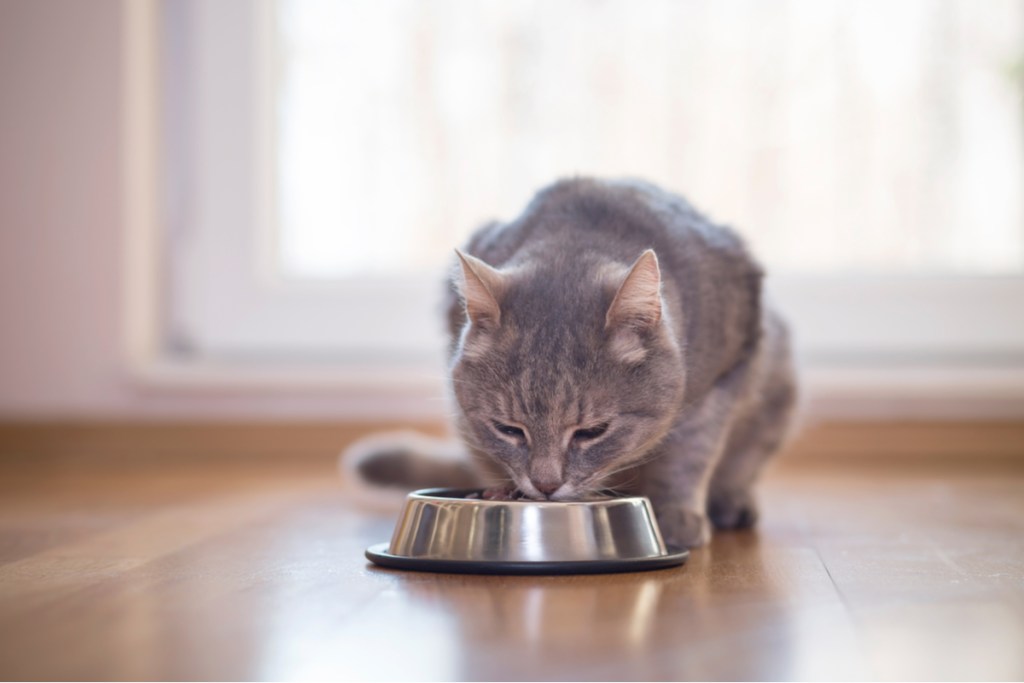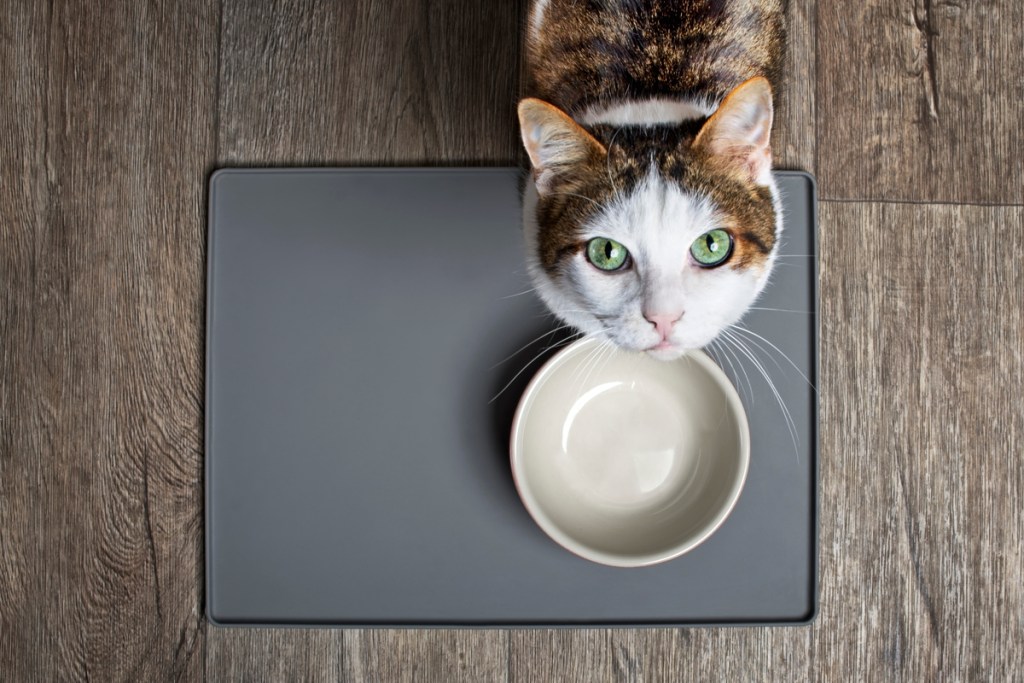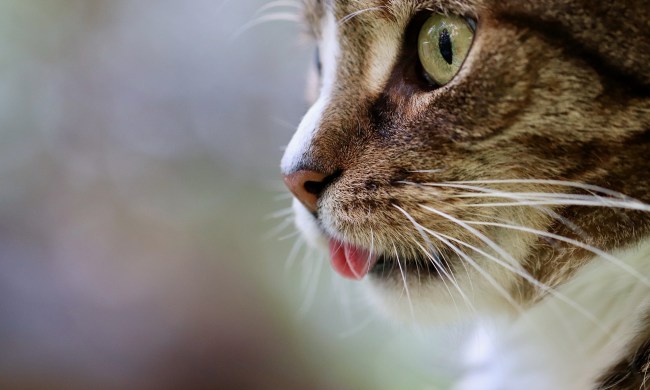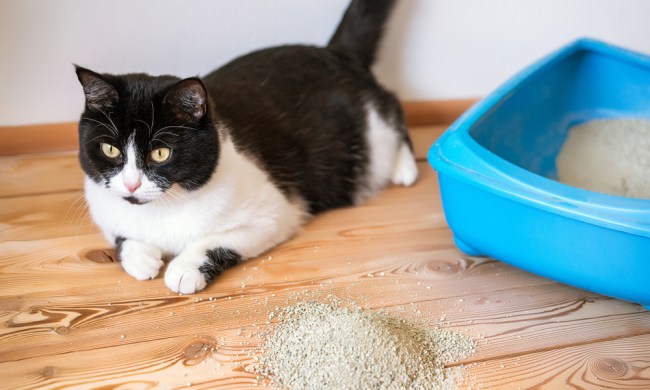When your cat is eating, you might notice he scratches the floor around his food dish during and after his meal. He may act like he's trying to dig up some dirt to bury his food, and he might continue the behavior for a few minutes after his fare is all gone. He might even try to pull nearby objects on top of his food bowl. This floor-pawing behavior is typical in cats, but if your cat uses his claws while he does it, he could scratch up your floors. Understanding what's motivating this behavior can help you identify ways to stop it.
Why do cats bury their food?
The answer to the question, "Why does my cat scratch the floor around his food?" lies in your cat's instinct. In the wild, cats bury their food to keep it and themselves safe. Burying food helps cover up its smell, so predators are less likely to be attracted. Your cat may be trying to bury leftover food to protect himself from predators.
Cats also tend to stash items like food and toys in a lair. This behavior is similar to how wild big cats, like cheetahs, carry their catch off and stash it somewhere so they can eat it later. You may find that your cat is stashing toys in different areas around your home. Trying to bury his food is an extension of this behavior. It's natural, and it makes perfect sense to your cat — he's just saving these things for later.
Your cat might also try to bury food when he doesn't like it. Just like he buries the poop in his litter box, digging lets the cat get rid of whatever he doesn't want around. The result is a neat and tidy space, which cats instinctively like.

How to stop a cat from scratching the floor
If you want to put an end to the scratching behavior, you may need to try a few different strategies.
Step 1: Experiment until you find a brand of food that your cat loves.
In some cases, your cat might bury food that he doesn't like. Experiment with different food flavors, textures, and brands to see if you can find a food that your cat likes more. Remember to make food changes gradually to avoid upsetting your cat's stomach.
Step 2: Feed smaller meals more frequently.
If your cat eats only a bit of food at a time, try to put down just as much food as he'll eat and divide up his mealtimes throughout the day. This can help keep the food fresh, and it also means there won't be extra food sitting around to be buried.
Step 3: Pick up your cat's food dish as soon as he's finished eating.
This may help since there won't be any food left to bury. You can also try distracting your cat immediately after a meal with playtime or treats.

Alternative solutions to floor scratching
Remember, your cat is acting on instinct and isn't intentionally trying to claw up your hardwood floor or make a mess. While you can change your cat's routine to prevent him from scratching the floor after a meal, you can also try some simple interventions so that the behavior isn't a problem.
Consider investing in a feeding mat to go underneath your cat's bowls. This mat will help protect the floor from your cat's claws, and it also helps reduce the mess caused by food or water that ends up outside your cat's dishes. These mats are easy to pick up and clean, saving you time and protecting your floor from damage, too.
Keep your cat's claws trimmed. This can reduce any damage he might do while scratching. Trim your cat's claws once every two weeks to address new growth. If your cat isn't cooperative about trims, or if you've never trimmed his claws before, your vet can help perform those trims and walk you through the process.
Your cat's floor-scratching behavior may be annoying, but it's also driven by natural instincts. Even though your cat is domesticated, he still may feel the need to protect his food, to save it for later, and to protect himself from predators at the same time. Alternatively, he might be burying food that he doesn't find tasty, especially if you've recently switched foods and noticed the behavior began after that.
What you decide to do about the issue will depend on your situation. If your cat is damaging your floors, then you'll need to take some steps to prevent the behavior or redirect his attention. If your cat isn't harming anything, then it's perfectly fine to let him continue with his floor-scratching and food-burying behavior.



